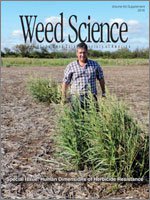When herbicide-resistant weeds are highly mobile across farms, delaying resistance becomes a common-pool resource (CPR) problem. In such situations, it is in the collective long-term interest of farmers to conserve an herbicide's usefulness. Yet, each farmer has an individual short-run incentive to use the herbicide without considering effects on resistance. This study considers the potential for community-based (CB) approaches to address problems of herbicide-resistant weeds. Here, growers actively participate in designing, financing, and implementing programs, usually in collaboration with industry, government, and universities. CB approaches have certain advantages over top-down regulatory or subsidy-based approaches. Scholars and practitioners have developed effective governance mechanisms for many CPRs that could aid in developing effective resistance management programs. Successful CB management programs for insect pest eradication and areawide invasive weed control offer additional lessons about the potential and challenges of such efforts. Lessons from these examples can inform the design and implementation of successful, voluntary programs for herbicide-resistance management. Key research, education, and outreach priorities to help implement successful CB programs are identified at the close.
How to translate text using browser tools
1 July 2016
Community-Based Approaches to Herbicide-Resistant Weed Management: Lessons from Science and Practice
David E. Ervin,
George B. Frisvold
ACCESS THE FULL ARTICLE

Weed Science
Vol. 64 • No. sp1
Special Issue 2016
Vol. 64 • No. sp1
Special Issue 2016
areawide
common-pool resources
community-based
Herbicide resistance




